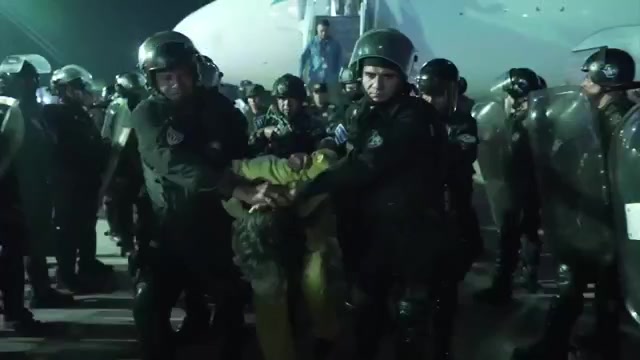Trump Administration’s Controversial Deportations Amid Legal Challenges
The recent actions of the Trump administration have sparked legal controversy as they continue to deport hundreds of immigrants to El Salvador, coinciding with a temporary restraining order issued by a federal judge. This ruling aimed to block the deportations linked to an 18th-century declaration utilized against Venezuelan gang members, specifically the Tren de Aragua gang, suspected of criminal activities.
Legal Proceedings and Deportations
On Saturday, U.S. District Judge James E. Boasberg formally issued an order halting deportations based on the unprecedented use of the Alien Enemies Act of 1798. Despite this, reports indicate that two planes carrying immigrants were already in the air — one heading to El Salvador and the other to Honduras. Although Judge Boasberg verbally instructed that these flights should be turned back, this directive was not included in his written order, leading to a potential violation of the court’s intent.
Administration’s Response
In response to concerns about procedural compliance, White House Press Secretary Karoline Leavitt reiterated that the administration did not defy the court, arguing that the order lacked lawful justification given the immediate circumstances, including previously deported individuals associated with the gang.
Political Reactions
Reactions to the ongoing situation have varied significantly among officials. Salvadoran President Nayib Bukele, who consented to receive approximately 300 immigrants into his country for a cost of $6 million, expressed delight at the continued deportations. He shared a message on social media highlighting the situation with the caption, “Oopsie…Too late.”
Similarly, Secretary of State Marco Rubio indicated satisfaction with the deportations, stating, “We sent over 250 alien enemy members of Tren de Aragua, which El Salvador has agreed to hold in their very good jails at a fair price that will also save our taxpayer dollars.”
The Implications of the Alien Enemies Act
Historically, the Alien Enemies Act has been invoked only three times in U.S. history: during the War of 1812 and both World Wars. This law allows the president to exercise extraordinary powers for the removal or detention of foreign nationals during wartime periods. Critics of its current application warn that it could pave the way for the wrongful deportation of innocent individuals, as outlined in concerns raised by human rights advocates.
Concerns Over Human Rights and Legal Basis
Amid the uproar, Venezuela’s government denounced the Trump administration’s actions, likening the declaration to historical injustices, including slavery and Nazi concentration camps. Legal experts have raised alarms, suggesting that the administration’s actions risk undermining constitutional protections for immigrants, especially those asserting they are wrongfully associated with criminal gangs.
Ongoing Legal Developments
The Department of Justice has since appealed Judge Boasberg’s decision and has pledged not to utilize the blocked proclamation for future deportations unless the ruling is overturned. The case documented the apprehension of five Venezuelan immigrants who sought legal intervention amid fears of being falsely accused of gang membership. The judge’s temporary hold on deportations provides a window for further evaluation of these claims.
Looking Forward
As the legal landscape evolves, Judge Boasberg has scheduled a subsequent hearing to deliberate on the issues of constitutional rights and immigration laws. He emphasized the urgency of addressing the potential violations that could occur if deportations proceed unchecked.
“Once they’re out of the country,” Boasberg stated during the hearings, “there’s little I could do.”

